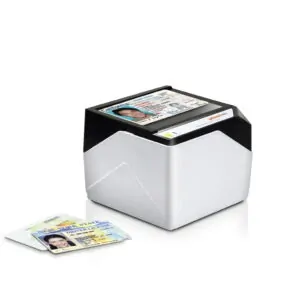
Tales from the Front Desk: Dealing with Difficult Guests in the Hospitality Industry
Table of Contents
ToggleThe hospitality industry has always had a love-hate relationship with its guests. While the primary goal is to provide exceptional service and make visitors feel welcome, there are instances when hotel staff must exercise caution when renting rooms to certain individuals. A popular Reddit post titled “Do you have a do not rent list, and am I on it?” brings to light an often-hidden aspect of hotel management – the existence of a “Do Not Rent” list. This article delves into the post and its comments to provide an insightful glimpse into this intriguing topic.
The “Do Not Rent” List: A Necessary Evil?
In the Reddit post, a user describes their experience with an unruly guest who caused significant damage to a hotel room. The user then poses the question, “Do you have a do not rent list, and am I on it?” This query sparked a fascinating discussion, with numerous hotel employees sharing their experiences with guests who found themselves blacklisted.
Some commenters shared anecdotes of guests who had been placed on “Do Not Rent” lists for relatively minor offenses, such as consistently leaving rooms in a mess or causing disturbances late at night. Others recounted stories of more serious incidents, such as drug use, theft, or even violence. Regardless of the reason for their inclusion on the list, one thing is clear: hotels must take measures to protect their property, staff, and other guests from potential harm.
The Role of Guest Ban ID Scanning in Hotels
With the need to identify and prevent problematic guests from staying at their establishments, hotel managers are increasingly turning to technology for assistance. One such solution is Guest Ban ID scanning, a sophisticated system that allows hotels to screen potential guests against a database of individuals who have previously been flagged for undesirable behavior.
Guest Ban ID scanning not only helps to protect hotels and their guests from potential harm, but it also serves as a deterrent for would-be troublemakers. When faced with the knowledge that their actions may result in being banned from multiple establishments, individuals may be more likely to think twice before engaging in risky or destructive behavior.
A Glimpse into the World of Hotel Staff
The Reddit post and its comments offer a wealth of stories and experiences from hotel staff who have dealt with troublesome guests.

One user recounted a story of a guest who had been placed on a “Do Not Rent” list after consistently leaving rooms in a state of disarray. Another commenter shared an experience with a group of guests who had been evicted and banned from the hotel for throwing a wild party that led to significant property damage.
Some comments also highlighted the importance of communication between hotels. One user explained that they worked at a hotel with multiple locations and that information about problematic guests was regularly shared between properties to ensure that undesirable individuals were kept away.
The Balancing Act: Protecting Hotels without Alienating Guests
While the existence of “Do Not Rent” lists and the use of technology such as Guest Ban ID scanning is essential in protecting hotels and their guests, striking the right balance is crucial.  Hotel staff must ensure that they do not alienate or inconvenience innocent guests in their quest to keep their establishments safe.
Hotel staff must ensure that they do not alienate or inconvenience innocent guests in their quest to keep their establishments safe.
For example, some Reddit users expressed concern about being mistakenly placed on a “Do Not Rent” list due to factors such as sharing a name with a banned individual or a case of mistaken identity. To address these concerns, Guest Ban has implemented features to ensure compliance and prevent unauthorized changes to the “Do Not Rent” list. By requiring proper authorization and an approval process, Guest Ban helps maintain the integrity of the list and reduces the likelihood of errors.
Moreover, Guest Ban also helps prevent cases of mistaken identity by utilizing advanced identification verification methods. This ensures that guests are accurately identified, avoiding any potential issues that may arise from confusion or shared names. Through these measures, Guest Ban offers hotels a reliable and efficient way to manage their “Do Not Rent” lists while minimizing the chances of inconveniencing innocent guests.
The hospitality industry is a complex world where hotels must constantly balance the need to provide exceptional service with the responsibility of protecting their property and guests. The existence of “Do Not Rent” lists and the implementation of Guest Ban ID scanning technology are key tools in this effort, helping to maintain a safe and enjoyable environment for all. The popular Reddit post “Do you have a do not rent list, and am I on it?” and its accompanying comments provide a unique and insightful glimpse into the challenges faced by hotel staff in dealing with problematic guests.
As the hospitality industry continues to evolve, so too must the methods used to maintain the safety and well-being of guests and staff alike. While the Reddit post and its comments paint a vivid picture of the challenges faced by hotel staff, they also highlight the determination and resourcefulness of those in the industry who are dedicated to providing the best possible experience for their guests.
In conclusion, the use of “Do Not Rent” lists and Guest Ban ID scanning technology is an essential part of maintaining the safety and security of hotels and their guests. By striking the right balance between protecting their establishments and respecting the rights of their guests, hotel staff can continue to provide exceptional service while ensuring that their hotels remain a welcoming and enjoyable place for all who visit.
Remember, the key to a successful hospitality experience is mutual respect and understanding. Hotels have a responsibility to create a safe and secure environment, but guests also have a role to play in maintaining that atmosphere by respecting the property, staff, and other visitors. With a little bit of communication and cooperation, both parties can work together to make each hotel stay a memorable one.
So, next time you check into a hotel, be aware that there might be a “Do Not Rent” list – and do your part to ensure you stay off of it. In the end, the key to a successful stay is a harmonious partnership between guests and hotels, where everyone works together to create a safe, secure, and welcoming environment for all.

